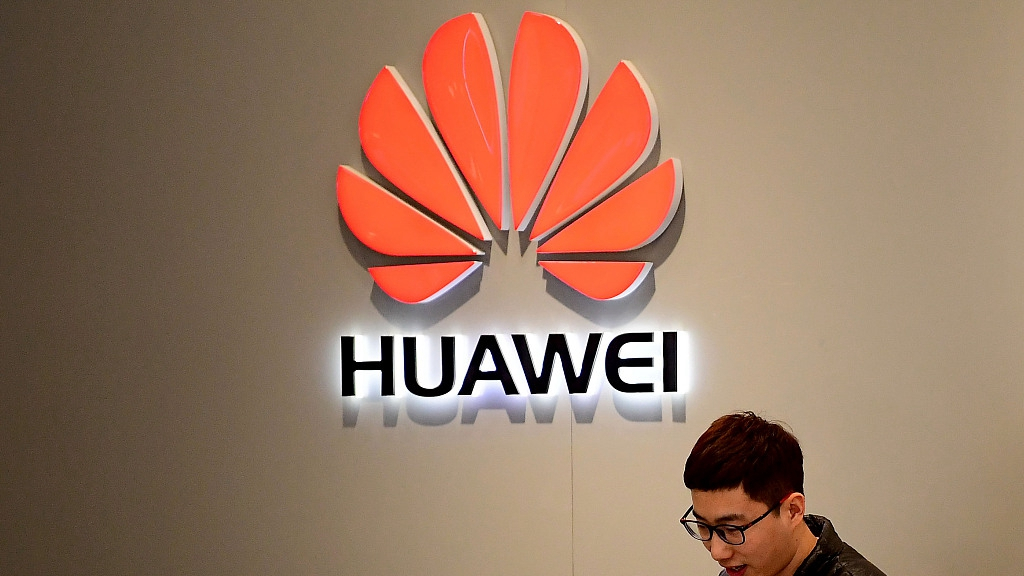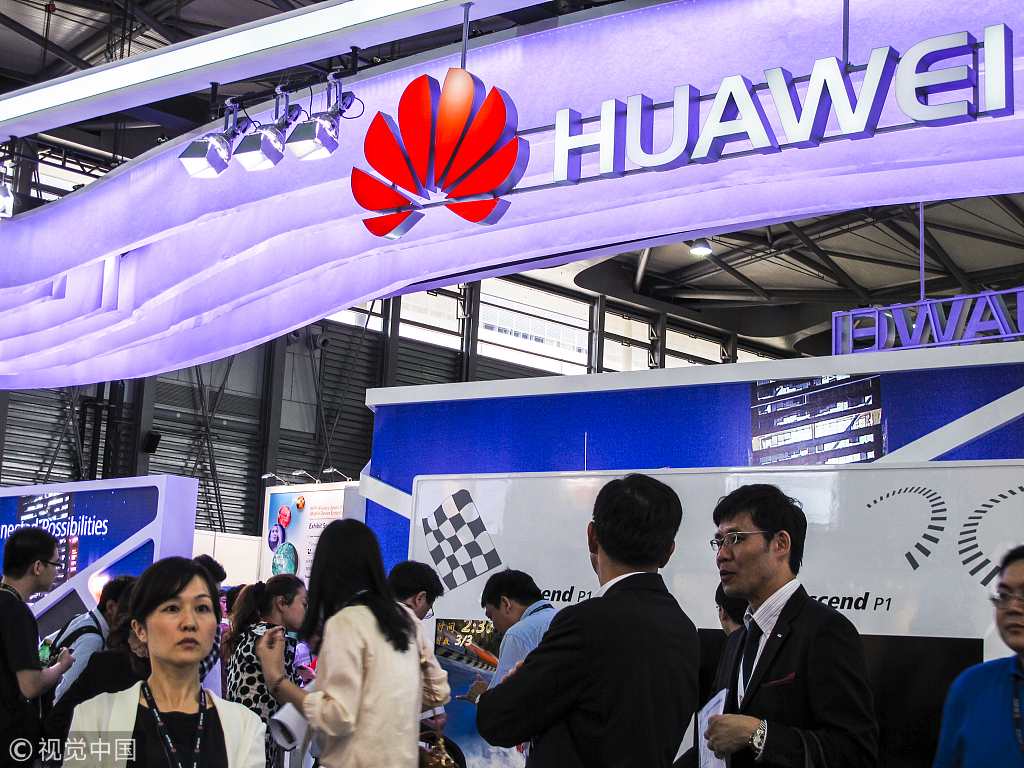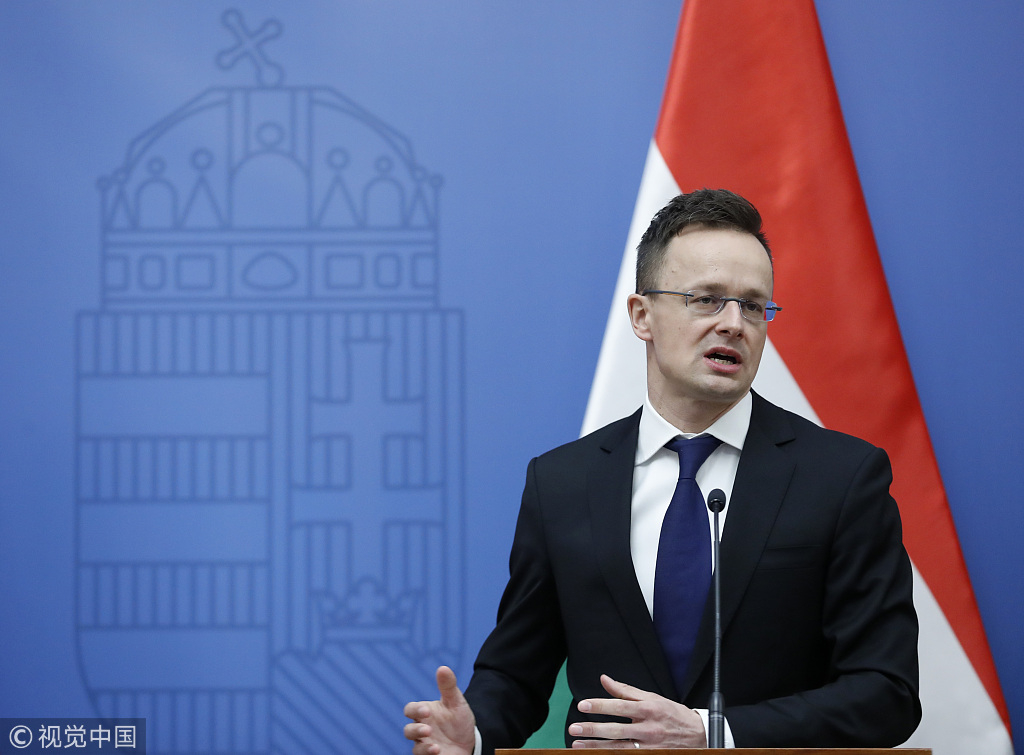
Opinion
12:02, 19-Feb-2019
Trump's Huawei ban: Colonial-era extraterritoriality on allies
Updated
15:44, 19-Feb-2019
Ken Moak

Editor's Note: Ken Moak taught economic theory, public policy and globalization at the university level for 33 years, and is the co-author of "China's Economic Rise and Its Global Impact" (2015). The article reflects the author's opinion, and not necessarily the views of CGTN.
The U.S. has been pressuring and threatening allies to bar Huawei and other Chinese equipment from their telecommunications infrastructure. The reason was an alleged Chinese law requiring telecommunications firms to allow government access to their data base.
The U.S. government interpreted the law as a way for the government to use companies such as Huawei as the backdoor to spy on the U.S. and its allies. At first, it seemed the U.S. pressure and threat are working as New Zealand, Australia, and Japan banned Huawei from participating in their 5G roll-out technology.
However, removing Huawei equipment from their telecommunications infrastructure based on allegations of spying or threatening national security might not be enough to escape contractual obligations without incurring a huge cost.
For example, Canada could be facing a lawsuit costing it billions of dollars in punitive damages should the government of Justin Trudeau follow the U.S. dictates, according to Osgood Law School professor Gus Van Harten, an expert on the subject.
He argues that the 2012 Canada-China Agreement for the Promotion and Reciprocal Protection of Investments guarantees “fair and equitable treatment and full protection and security” for each other's investments.
This implies that Canada cannot bar Huawei from participating in its 5G infrastructure simply based on allegations. Canada must prove that a threat does materially exist, which is an impossible task.

A Huawei stall during an exhibition. /VCG Photo
A Huawei stall during an exhibition. /VCG Photo
U.S. forcing allies to choose sides
The U.S. is making things difficult for its allies, warning them that “future relationships are at stake” if countries do not follow America in banning Huawei and other Chinese equipment from their 5G network. This is a not-so-subtle threat similar to George W. Bush's “doctrine” of “either you are with or against us” when he was demanding allies to join him in invading Iraq.
Trump's threat is even more troublesome for allies because China is not Iraq, most U.S. allies are dependent on the Asian giant for their economic well-being. For example, Canada has devoted considerable capital and time to forge a free trade agreement with China, hoping the latter would buy huge quantities of Canadian energy, forestry, agricultural and other products.
Other U.S. allies – the UK and Germany among others – are in a similar situation. The UK, for example, has indicated that it can manage the “security risk,” implying that it would allow Huawei equipment into the country's 5G network. Indeed, the head of the country's spy agency MI6, Alex Younger said that it is unwise to ban Huawei equipment entirely. Hungary is even blunter, telling America not to infringe on its right to use any country's equipment.
Time will tell what impact will the U.S. threat have on its allies, but the Iraq experience suggests that strong as America is, it cannot force the world to bend to its will particularly when its demands are hurting the allies' national interests.
Not succumbing to U.S. pressure might be lesser of 'two evils'

Hungarian Foreign Minister Peter Szijjarto dismissed criticism against Huawei in Budapest, Hungary, February 11, 2019. /VCG Photo
Hungarian Foreign Minister Peter Szijjarto dismissed criticism against Huawei in Budapest, Hungary, February 11, 2019. /VCG Photo
The countries that did not join Bush's “coalition of the willing” did receive a “slap on the wrist.” “Patriotic” Americans dumped champagne down the drains and renamed French fries as “freedom” fries.
However, those who joined the U.S. invasion of Iraq sacrificed many of their young men and women literally for nothing. The UK lost over 600 lives and many more were wounded, forcing then Prime Minister Tony Blair to resign and destroying his legacy.
China is not perfect, but it did not do a fraction of the “crimes” that the U.S. accused it of. No country, including the U.S., has ever presented any evidence that the Chinese government spied on it through Huawei or any other Chinese equipment.
Allowing Huawei equipment into their 5G network would enhance the U.S. allies' economic well-being and telecommunications technology. Besides, it would be difficult to exclude the company's technology and equipment since Huawei has patented some of them and as Germany's foreign minister said, “Where else can we buy from?”
Nokia, Ericsson and Samsung equipment are far more expensive and less efficient than Huawei's.
In pressuring and threatening allies with reprisal to give up their national interests and sovereignty, the U.S. is practicing colonial-era extraterritoriality or imposing its law on friends. In this regard, America should not be surprised that its “heavy-handed” diplomacy did not go well with allies in the Munich Security Conference.
Allies such as the UK is right to include Huawei equipment in its 5G network. Indeed, it is high time the U.S. treats China and other countries as equals, cooperating with them to promote and sustain long-term eco-geopolitical stability.
(If you want to contribute and have specific expertise, please contact us at opinions@cgtn.com.)

SITEMAP
Copyright © 2018 CGTN. Beijing ICP prepared NO.16065310-3
Copyright © 2018 CGTN. Beijing ICP prepared NO.16065310-3